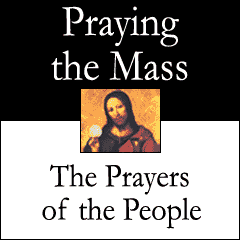Yes, I know that the upcoming Apostolic Constitution is about Anglicans and not Lutherans, but it is a persistent question we get here at SCE from our Lutheran brothers and sisters (and one that, frankly, holds a strange fascination for me), ie. “What does this mean for us?”.
Well, today a member of the commentry team, from Argentina no less, asked this question:
I’ve read somewhere that there is a group of anglo-lutheran-catholics (or something lie that) that have already sent a letter to the Pontifical Council for Christian Unity. The letter -so it is said- was letter forwarded to the CDF. Even if this is not the case, do you think that something similar to what may be happening with anglo-catholics could happen with groups of Lutherans? I think that Lutherans in Sweden even have benedictine monasteries… (something I never thought).
Thanks in advance.
The close similarities between Anglicans and Swedish Lutherans is well known. The two churches are, after all, in full communion with each other. Both claim to have preserved the historic episcopate. Both have a liturgical tradition and distinct culture that goes back to before the Reformation. Both are State Churches which embrace a majority of their citizens (and dwarf any Catholic presence). Unfortunately, both also have gone down the road of women’s ordination and the ordination of active homosexual clergy. In fact, if you can believe this is possible, the Swedish Church is more liberal by half than the US Episcopalians.
But Sweden does have a proud “catholic” heritage. Lutheran Confessionalism does exist there, but so, I understand, does a small but strong “catholic” stream not unlike the Oxford Movement (only nowhere near as influential). These two are natural allies to some extent. In addition, there are evangelicals (like Anglican evangelicals) and pietists (the pietist revival ran strong from generations in Scandinavia). Although there have been women priests in Sweden for about 50 years, and bishops too more recently, there have always, in the past, been one or two bishops hanging onto “the old ways” which have provided safe harbour for “orthodox” minded priests.
Over the last decade or so this has ceased to be the case, with the result that those objecting to the new mores went ahead and formed something called the Missionsprovinsen in the Church of Sweden. This group embraces (from what I can gather) a disparate band of “catholics”, evangelicals, pietists and confessional Lutherans.
Dr Tighe will be able to enlighten us more about any “letter” that this group might have sent to Rome, but I think you will see that there are indeed parallels to the continuing Anglicans – one of which being that it is not at all a “given” that this group wishes to enter (as a whole) into communion with the Catholic Church. There are other options. For eg. A Norwegian break-away Lutheran group calls itself the “Nordic Catholic Church” has aligned itself with the Polish National Catholic Church.
But having said that, I have been listening to the Forward in Faith podcasts and was suprised to hear that there was a pastor there from the Mission Province of Sweden who addressed the assembly. And his question was exactly this: “What does the Anglican Apostolic Constitution mean for us?” He certainly seemed to be saying that the Mission Province crowd might be interested in such a proposal for themselves.
Now, I have argued elsewhere that the model proposed by Papa Benny for those Anglican churches who have requested communion with the Holy See will not work for Lutherans because
1) it involves complete acceptance of the Catholic Faith as expressed in the Catechism of the Catholic Church – and hence a rejection of a lot of things in the Lutheran Confessional tradition
2) Lutherans do not really have a distinct culture or liturgical use that could be distinctly “preserved” in a “Lutheran Ordinariate”
But the Swedes are a different matter. They are just like the Anglicans in that they do have a particular Scandinavian heritage which goes back to before the Reformation. They would be quite distinct – especially given that there are hardly any Swedish Catholics (for historical reasons mainly). If anyone has preserved anything of the ancient Catholic Church in the Swedish territories, it is these pastors and laity in the Swedish Mission Province. So, yes, something like the Anglican Solution could apply to these Lutherans.
BUT, a word of caution: we are not talking about 77 million people here, as we are with the Anglicans. The Swedish Lutheran Church is not huge, and does not have “colony” churches around the world (although many of Swedish heritage populate the local Lutheran Churches in countries such as the USA and Canada). It seems very unlikely to me that His Holiness would really issue a new Apostolic Constitution just for the Mission Province.
BUT (what does a “double but” make?), it could be conceivable that, once all the canons for the Anglican Constitution are set out, these same canons might be applied, mutatis mutandis, to Swedish Lutherans. I doubt if this would lead to Lutheran ordinariates all over the world, but two ordinariates might suffice for the whole world (eg. one in Sweden and one in the US). And if such a thing were set up for Swedish Lutherans, I rather think there would be a fair number of other non-Swedish catholic Lutherans who would want to join them. The language of the liturgy could be tricky though…













